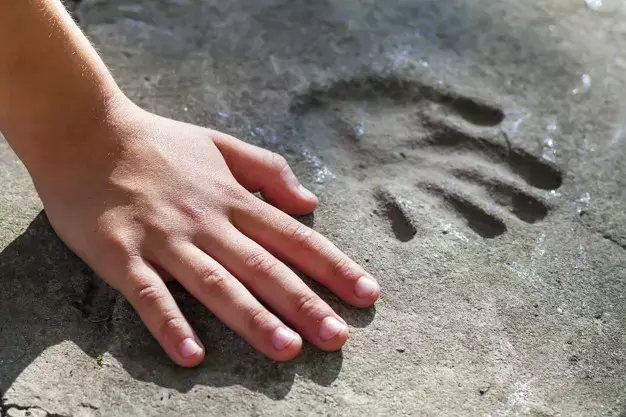- Home
- Medical news & Guidelines
- Anesthesiology
- Cardiology and CTVS
- Critical Care
- Dentistry
- Dermatology
- Diabetes and Endocrinology
- ENT
- Gastroenterology
- Medicine
- Nephrology
- Neurology
- Obstretics-Gynaecology
- Oncology
- Ophthalmology
- Orthopaedics
- Pediatrics-Neonatology
- Psychiatry
- Pulmonology
- Radiology
- Surgery
- Urology
- Laboratory Medicine
- Diet
- Nursing
- Paramedical
- Physiotherapy
- Health news
- Fact Check
- Bone Health Fact Check
- Brain Health Fact Check
- Cancer Related Fact Check
- Child Care Fact Check
- Dental and oral health fact check
- Diabetes and metabolic health fact check
- Diet and Nutrition Fact Check
- Eye and ENT Care Fact Check
- Fitness fact check
- Gut health fact check
- Heart health fact check
- Kidney health fact check
- Medical education fact check
- Men's health fact check
- Respiratory fact check
- Skin and hair care fact check
- Vaccine and Immunization fact check
- Women's health fact check
- AYUSH
- State News
- Andaman and Nicobar Islands
- Andhra Pradesh
- Arunachal Pradesh
- Assam
- Bihar
- Chandigarh
- Chattisgarh
- Dadra and Nagar Haveli
- Daman and Diu
- Delhi
- Goa
- Gujarat
- Haryana
- Himachal Pradesh
- Jammu & Kashmir
- Jharkhand
- Karnataka
- Kerala
- Ladakh
- Lakshadweep
- Madhya Pradesh
- Maharashtra
- Manipur
- Meghalaya
- Mizoram
- Nagaland
- Odisha
- Puducherry
- Punjab
- Rajasthan
- Sikkim
- Tamil Nadu
- Telangana
- Tripura
- Uttar Pradesh
- Uttrakhand
- West Bengal
- Medical Education
- Industry
Rare Case of Wet Cement Burn reported in JEM

Burns are a common condition presenting to the emergency department; the majority are thermal burns. However, in a recent case report, Dr Aaron J Lacy and his team have reported a case of a 7-year-old boy who accidentally got wet cement all over his head and torso ended up in the emergency room with burns after exposure to wet cement. The report has been published in The Journal of Emergency Medicine on June 02, 2021.
Wet cement can cause severe chemical burns as cement becomes highly alkaline when mixed with water. Wet cement can have a pH as high as 14, the authors noted in the report. They wrote, "Wet cement is often a poorly recognized cause of alkali burns".
Treatment of wet cement burn usually involves rinsing the skin with a copious amount of water. Physicians also use polyethene glycol to wash the skin, but there is no evidence that these are better alternatives to water.
Case Details:
The authors explained about a 7 years old boy who was transferred from an outside facility to the emergency department f Vanderbilt University Medical Center in Nashville, Tennessee for further evaluation of burns after exposure to wet cement. The child was presented with superficial or first degree burns on his head, neck and torso and some visible cement particles clung to his skin and hair.
The child's skin was irrigated with water until all the cement was completely removed. He was then referred to a burn specialist for additional evaluation. As the patient required no further intervention, he was then discharged and made a full recovery.
The authors wrote, "Serious morbidity and mortality can occur from unrecognized cement burns, and early decontamination and evaluation by a burn surgeon is necessary. It is critical that emergency physicians both recognize and appropriately treat this condition in a timely manner to prevent adverse outcomes."
For further information:
https://www.jem-journal.com/article/S0736-4679(21)00300-0/fulltext
Josepha James (Msc Cinical Research) joined Medical Dialogues as a writer in Medical News Section in 2020 . She covers news in several medical specialties from both national and international journals and associations. She has completed Bachelors in Physician Assistant and then pursued Masters in Clinical Research. She can be contacted at editorial@medicaldialogues.in.
Dr Kamal Kant Kohli-MBBS, DTCD- a chest specialist with more than 30 years of practice and a flair for writing clinical articles, Dr Kamal Kant Kohli joined Medical Dialogues as a Chief Editor of Medical News. Besides writing articles, as an editor, he proofreads and verifies all the medical content published on Medical Dialogues including those coming from journals, studies,medical conferences,guidelines etc. Email: drkohli@medicaldialogues.in. Contact no. 011-43720751


